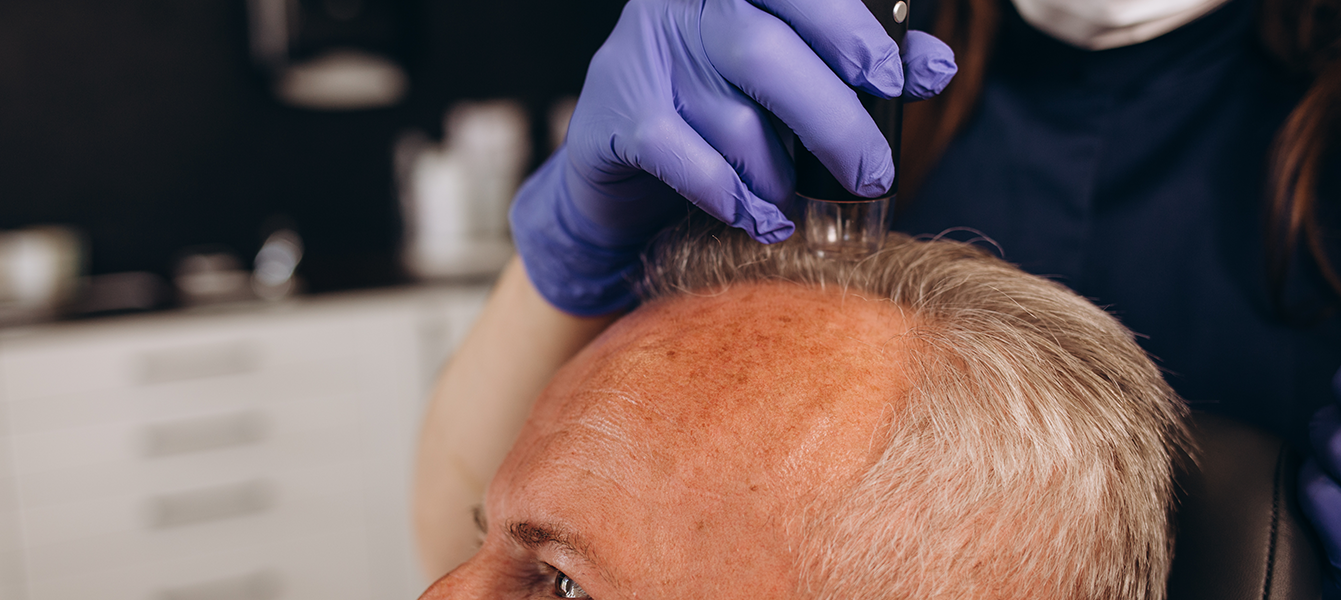Aftercare is arguably as critical as the surgery itself in ensuring the success and longevity of your hair transplant in Riyadh. Following your surgeon's specific instructions meticulously will significantly impact graft survival, minimize complications, and optimize your final results. While every clinic might have slight variations, here are general aftercare tips for hair transplant patients in Riyadh:

Immediate Post-Operative Period (Days 1-7)
This is the most delicate phase where the newly transplanted grafts are vulnerable.
- Protect the Transplanted Area:
- Avoid Touching/Rubbing: Do not touch, rub, scratch, or pick at the transplanted grafts. They are very delicate and can be dislodged easily in the first few days.
- Sleeping Position: Sleep with your head elevated at a 45-degree angle for the first 5-7 nights. Use multiple pillows or a neck pillow. This helps reduce swelling and prevents accidental contact with the transplanted area.
- Wear Loose Clothing: Opt for loose-fitting, button-up shirts or zip-up hoodies for the first few days to avoid pulling clothing over your head, which could snag grafts.
- Manage Swelling and Discomfort:
- Swelling: It's common to experience swelling in the forehead and around the eyes. This usually peaks around day 3-4 and subsides by day 7. Sleeping elevated helps. Your surgeon might also recommend cold compresses (applied above the hairline, not directly on the grafts) or prescribe anti-inflammatory medication.
- Pain/Discomfort: Mild pain or discomfort in the donor and recipient areas is normal. Take prescribed pain medication as directed by your surgeon.
- Numbness/Itching: Some numbness or itching in the scalp is common as nerves heal. Avoid scratching; your clinic might provide a gentle soothing spray.
- Washing and Cleaning the Scalp:
- First Wash: Your clinic will provide specific instructions for your first wash, often done at the clinic itself 24-72 hours after the procedure, or they'll guide you on how to do it gently at home.
- Gentle Technique: Use the special shampoo and lotion provided. Apply the lotion/foam gently over the transplanted area and let it sit for a few minutes. Rinse very gently by pouring lukewarm water over your head (avoid direct shower pressure) without rubbing. Pat dry with a very soft towel or air dry.
- Frequency: Follow your clinic's advice on how often to wash. Gentle washing helps remove scabs and dead skin, which is crucial for healthy graft growth.
- Medication Adherence:
- Take all prescribed medications as instructed. This may include antibiotics (to prevent infection), pain relievers, and anti-inflammatories.
- Avoid Certain Activities:
- Strenuous Exercise: Avoid any strenuous physical activity, heavy lifting, or activities that cause excessive sweating for at least 7-14 days, as this can increase swelling and dislodge grafts.
- Sun Exposure: Protect your scalp from direct sunlight for several weeks (at least 2-4 weeks). Wear a loose-fitting hat only if approved by your surgeon, ensuring it doesn't rub the grafts.
- Smoking and Alcohol: Avoid smoking and alcohol for at least 2 weeks post-surgery (and ideally longer) as they can impair healing and blood supply to the grafts.
Short-Term Aftercare (Weeks 2-4)
- Scab Removal: Continue gentle washing as instructed. The scabs around the grafts should naturally fall off within 10-14 days. Do not pick them, as this can dislodge the graft.
- Shock Loss: It's normal for the newly transplanted hairs to shed during this period. This is called "shock loss" and is a temporary phase; the hair follicles remain dormant beneath the skin and will start growing new hair in a few months.
- Return to Normal Activities: You can gradually resume light activities. Consult your surgeon for clearance on more strenuous exercise.
Long-Term Aftercare (Months 1-18)
- Patience is Key: Hair growth is a slow process. Initial growth usually appears around 3-4 months, with significant density improvements at 6-9 months. Full results typically take 12-18 months.
- Hair Care Products: Use mild, gentle shampoos and conditioners. Avoid harsh chemicals or styling products for a few months.
- Follow-Up Appointments: Attend all scheduled follow-up appointments with your clinic in Riyadh. These are essential for monitoring your progress and addressing any concerns.
- Medications/Therapies: Your surgeon might recommend long-term use of medications like Minoxidil or Finasteride, or adjunctive therapies like PRP, to support the health of your native hair and enhance the overall outcome of your transplant.
- Sun Protection: Continue to protect your scalp from excessive sun exposure, especially in the first few months.
- Healthy Lifestyle: Maintain a balanced diet, stay hydrated, and avoid smoking to support overall hair health and the vitality of your transplanted grafts.
By diligently adhering to these aftercare tips and maintaining open communication with your hair transplant clinic in Riyadh, you can significantly contribute to the success of your procedure and enjoy natural, long-lasting results.




Comments